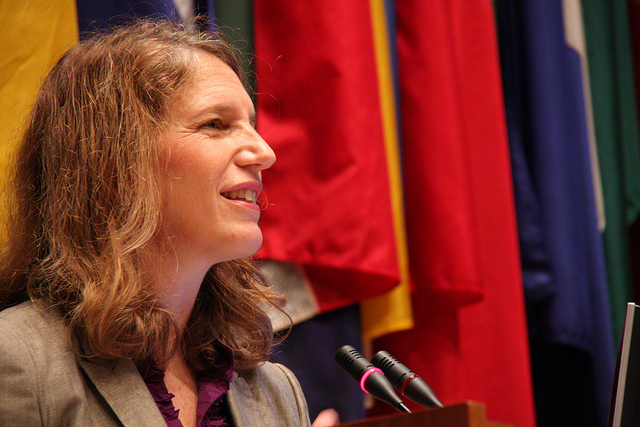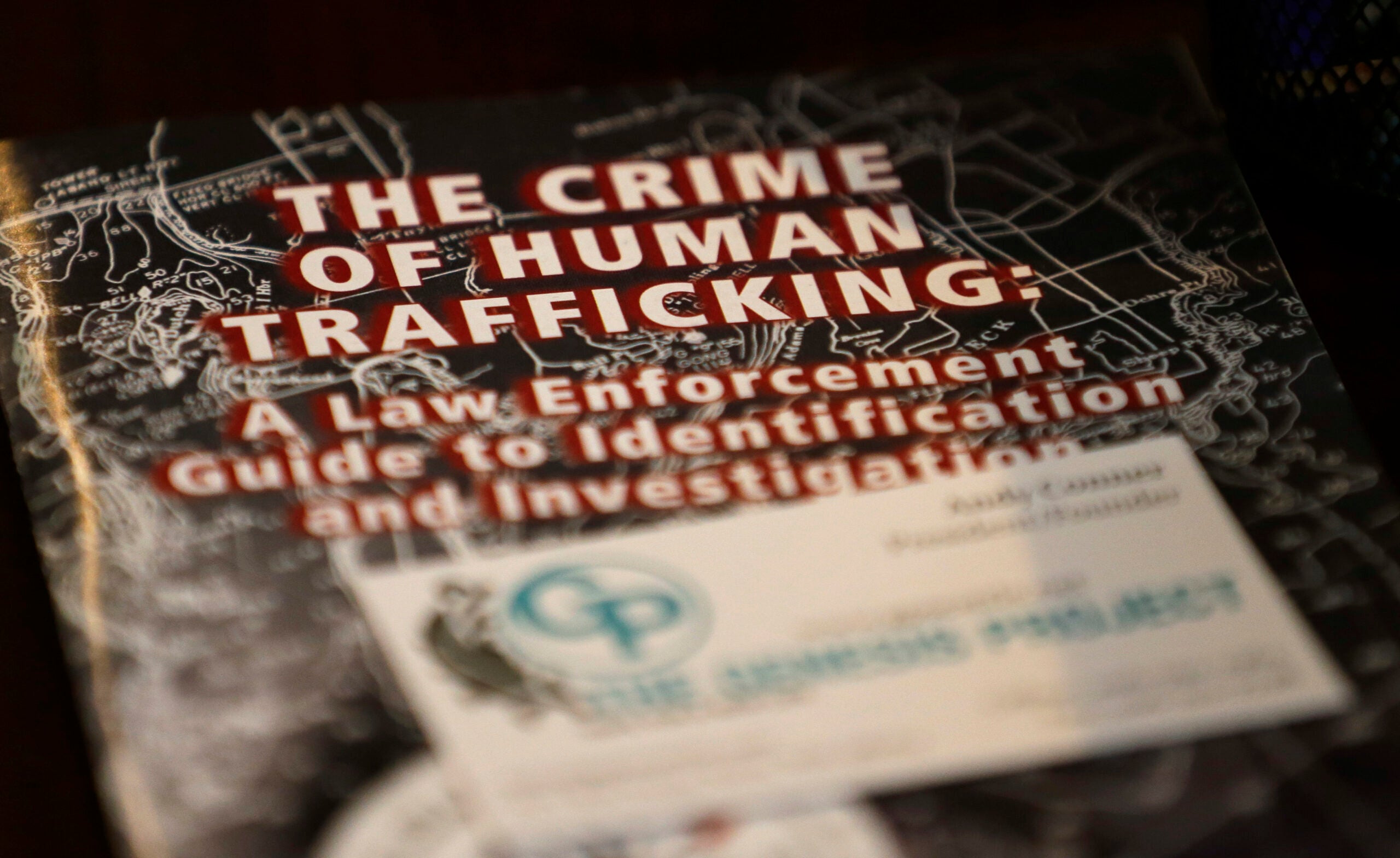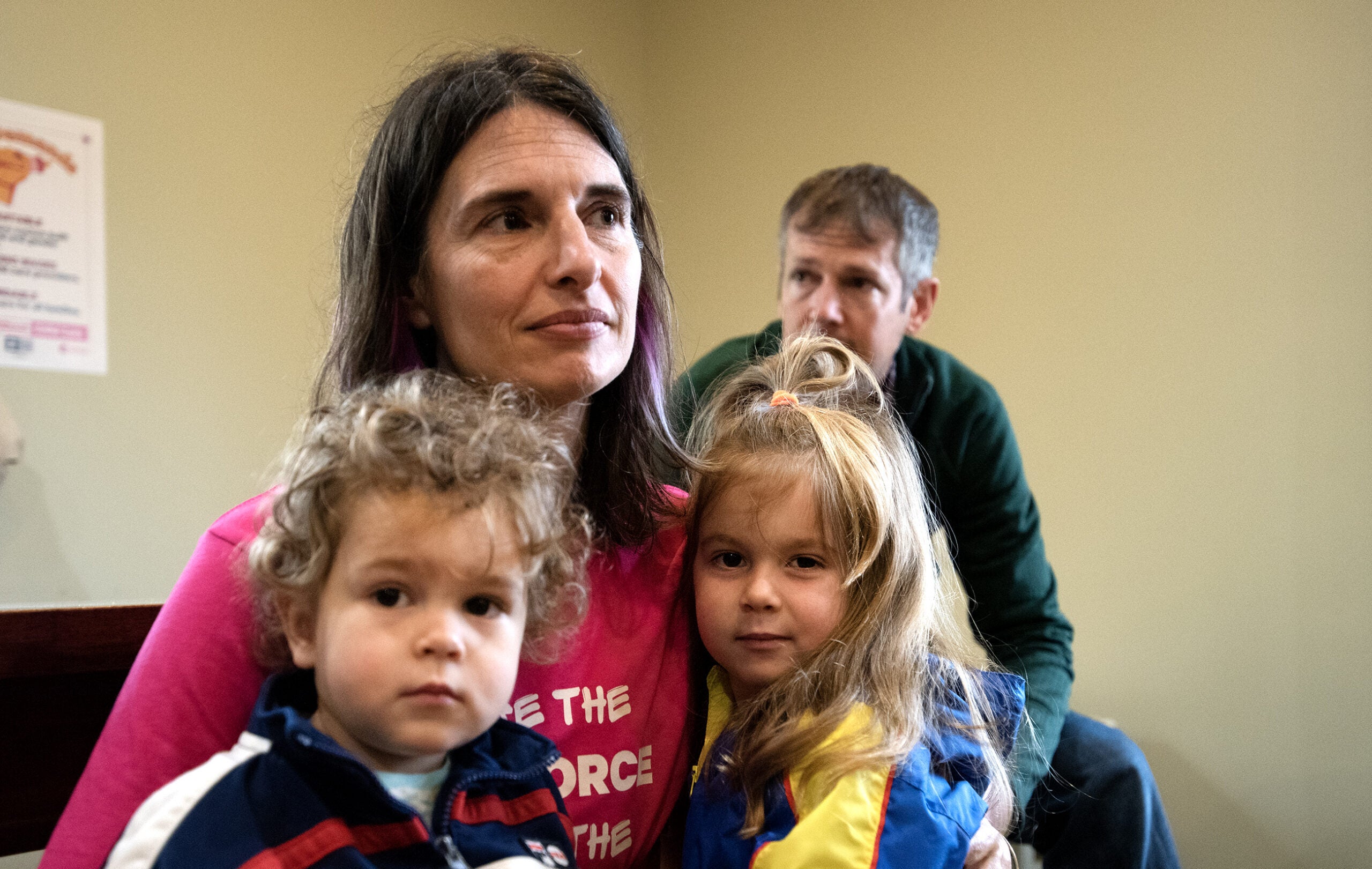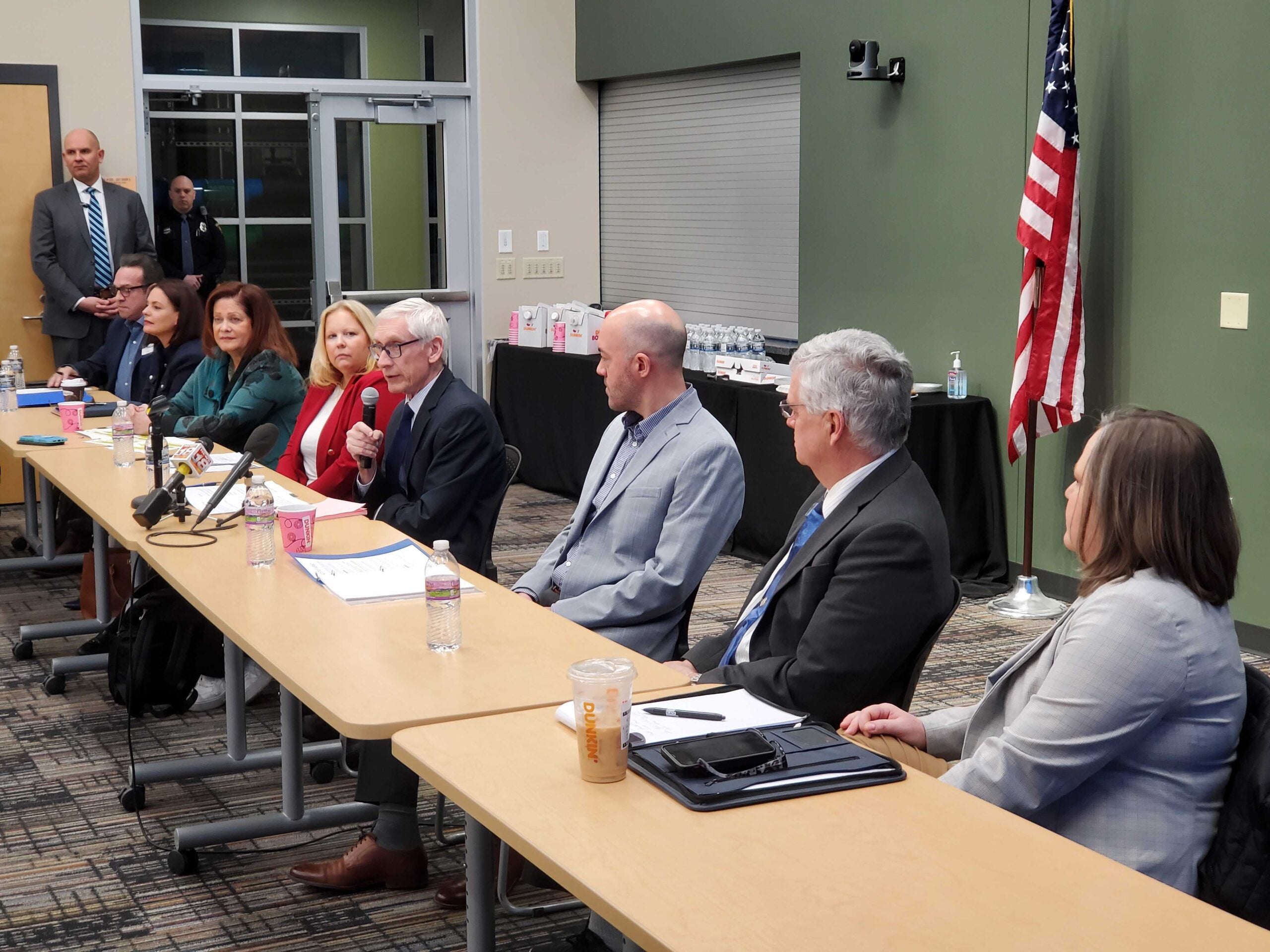Editor’s Note: U.S. Health and Human Services Secretary Sylvia Burwell visited Milwaukee on Monday, at a time when a ruling in a major U.S. Supreme Court case involving the Affordable Care Act is expected in short order. In the case King v. Burwell, the justices are deciding whether people are eligible for insurance subsidies in states where the federal government runs the health care marketplace. Wisconsin is one such state.
WPR’s Chuck Quirmbach spoke with Burwell and asked her what would happen if President Barack Obama’s administration loses the case.
Sylvia Burwell: Well, first I should say that we think we will win the case, and that’s because we believe both in terms of what is written in the law and the intention of the law, are the way that we’re interpreting it. And a big part of why we believe that, is that the idea that tax credits and subsidies would be given to folks in New York but not folks here because there isn’t a state-based marketplace — we don’t believe that was what was intended in the law.
Stay informed on the latest news
Sign up for WPR’s email newsletter.
If, as you said, it would happen, that that would occur, in terms of the impact in a state like Wisconsin … In Wisconsin, 183,00 folks have come through in the marketplace, and 90 percent of those people actually receive support and subsidies on a monthly basis. And the average amount of those subsidies is … over $300 a month. And so one knows that if the court were to rule that there could not be subsidies in states without a state-based marketplace, those subsidies would go away. And so the impact would be really three things would happen.
One, for those folks that lose those subsidies, it is highly likely that their coverage would become unaffordable for them, and so they’d become uninsured. The second thing that would happen is, in the individual market, the market where all these people are, what would happen is sicker people would be in the marketplace, because those are the people who are willing to pay higher prices. And that leads to a downward spiral in price, because when only the sicker people are in, insurance becomes more expensive. And then the third area is uncompensated care, and when you have an increase in uninsured.
WPR: There’s a state lawmaker in Wisconsin today, a Democrat asking a Republican state health secretary, “What would you do at the state level?” What options would there be for the states under whatever’s left of the law?
SB: Many of the things about the law would still stay in place. For those who have employer-based coverage, still your children can stay on until 26. Still in terms of those folks, the idea of not having co-pays for a lot of preventative care, knowing no limits, no lifetime limits — a lot of important changes that were for the broader public. But with regard to the question of those that are in that marketplace, those would be great impacts. And in terms of what can happen and what would happen, we as an administration will do everything that we can to be prepared as we can for that type of decision, but as I have said before, the critical decisions that would be able to undo this damage fully would sit with states or the congress.
WPR: Governor Walker (has been) talking a lot about not accepting federal money. I guess he’s worried about the federal government not living up to financial promises. Are you trying to change his mind on that?
SB: So with regard to the issue of the federal monies for the Medicaid expansions, one of the first things I did a year ago when I first became secretary is go to the National Governors Association, meet with all the governors in both parties, and say, “We want to work with states on a state-by-state basis on solutions.” And with regard to the governors, this has been a question that governors have asked, and I’ve sent a number of letters to make sure that they know that the money is there. It is committed. It is only in 2016 that you have a slight drop, and it only goes down to where the federal government pays 90 percent of the expansion costs. And for states, over a period of time it would drop to where states would pay 10 percent. And so I’ve sent the letters to make sure that people know that that is a firm commitment.
WPR: And yet there’s not a lot of governors changing their minds, it seems.
SB: Well, certainly Pennsylvania has come in. In addition to Pennsylvania, Indiana — a neighbor with a Republican governor that put together a plan. We spent a lot of time on that with Governor (Mike) Pence. Certainly conversations are still going with Utah and Governor (Gary) Herbert and a team of folks he’s put together there. Montana’s just passed legislation, and so we’ll work with the governor to follow up on that legislation. So there is some progress in a number of places.
WPR: But not in Wisconsin, where there are some Democrats who are saying, “Governor, if you took the federal money, we’d end up cutting other parts of the budget less.”
SB: With regard to the issue of the economics for states, we see that conversation a lot all over the country. And I think one of the best places to look for the focus of that conversation is in Kentucky, where they have had the expansion. They did a study in the beginning, and now they’ve done a study over a year in, with the University of Lousville and Deloitte, and what they’ve found is, that in Kentucky by the year 2021, this expansion will help create 40,000 jobs in the state of Kentucky and contribute $30 billion to the state coffers.
Wisconsin Public Radio, © Copyright 2024, Board of Regents of the University of Wisconsin System and Wisconsin Educational Communications Board.





